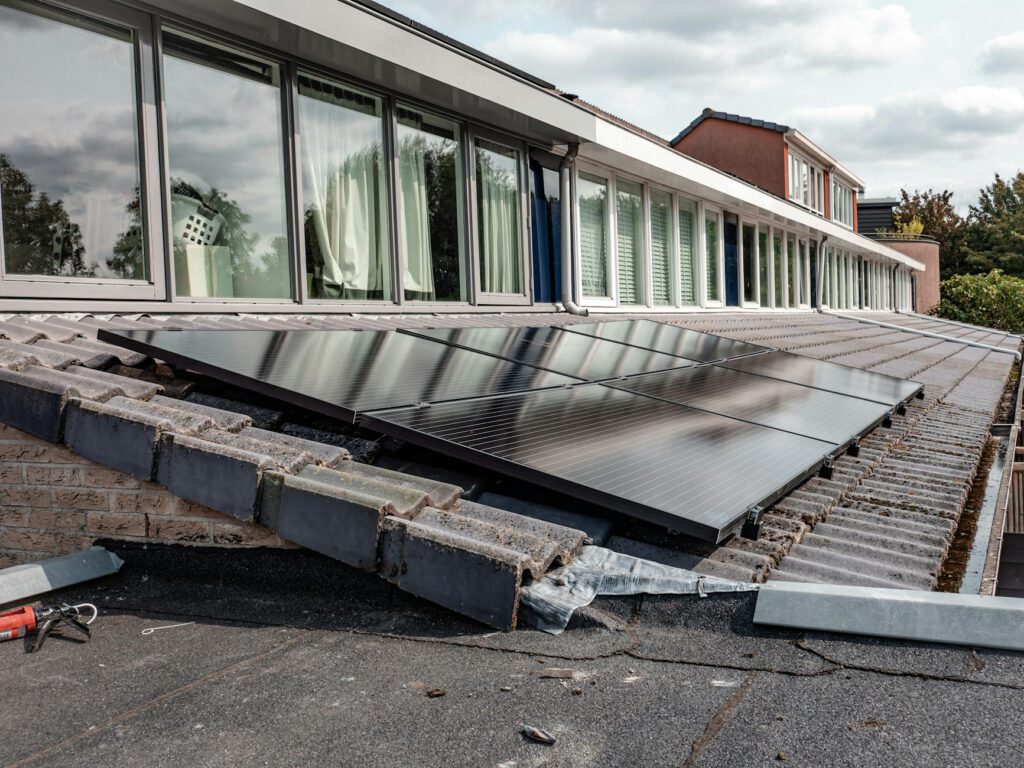Introduction
As energy costs continue to rise, home-based businesses are increasingly turning to solar power as a cost-effective and sustainable solution. Solar energy not only reduces electricity bills but also minimizes carbon footprints, making it an attractive option for entrepreneurs who want to operate efficiently and responsibly.
This article explores affordable solar energy solutions tailored for home-based businesses, covering key benefits, practical installation steps, financing options, and essential tools to maximize efficiency. Whether you run a small online store, a freelance consultancy, or a craft workshop, solar power can help you cut costs while supporting a greener future.
The Benefits of Solar Energy for Home-Based Businesses
Switching to solar power offers numerous advantages for home-based entrepreneurs:
1. Lower Operating Costs
Solar panels significantly reduce electricity bills by generating free power from sunlight. Over time, the savings can offset the initial installation costs, making it a smart long-term investment.
2. Energy Independence
Relying on solar energy reduces dependence on utility companies, protecting businesses from fluctuating energy prices and potential outages.
3. Tax Incentives and Rebates
Many governments offer tax credits, rebates, and grants to encourage solar adoption. These incentives can substantially lower upfront costs.
4. Eco-Friendly Branding
Consumers increasingly favor businesses with sustainable practices. Using solar energy enhances brand reputation and attracts environmentally conscious customers.
Affordable Solar Solutions for Home Businesses
1. Grid-Tied Solar Systems
A grid-tied system connects to the local utility grid, allowing businesses to use solar power while still drawing electricity from the grid when needed. Excess energy can be sold back to the utility company through net metering, further reducing costs.
Example: A freelance graphic designer installs a 5kW grid-tied system, cutting their monthly electricity bill by 70%. During peak sunlight hours, surplus energy is fed back into the grid, earning credits that offset nighttime usage.
2. Off-Grid Solar Systems
For businesses in remote areas or those seeking complete energy independence, off-grid systems with battery storage provide reliable power without grid reliance.
Steps to Implement:
– Assess energy needs (calculate daily kWh usage).
– Install solar panels and a battery bank.
– Use an inverter to convert DC power to AC for appliances.
– Monitor system performance regularly.
3. Portable Solar Solutions
Small-scale businesses with minimal energy needs can opt for portable solar panels or solar generators. These are ideal for pop-up shops, mobile services, or temporary workspaces.
Tools & Resources:
– Goal Zero Yeti (portable solar generator)
– Jackery SolarSaga (foldable solar panels)
– Renogy Solar Kits (affordable starter systems)
Financing Solar Energy for Your Business
1. Solar Loans
Many banks and credit unions offer low-interest loans specifically for solar installations, allowing businesses to pay over time while still benefiting from immediate energy savings.
2. Leasing or Power Purchase Agreements (PPAs)
With solar leasing, a third party owns and maintains the system while you pay a fixed monthly fee. PPAs allow you to purchase solar energy at a lower rate than utility prices.
3. Government Incentives
Research federal and state programs like the Federal Solar Tax Credit (ITC), which covers 30% of installation costs. Local utility companies may also offer rebates.
Maximizing Solar Efficiency
1. Energy Audits
Conduct an energy audit to identify wasteful consumption. Replace inefficient appliances with ENERGY STAR-rated models.
2. Smart Energy Management
Use smart plugs, timers, and energy monitors to optimize power usage. Schedule high-energy tasks (e.g., printing, heavy computing) during peak sunlight hours.
3. Battery Storage
Adding a battery backup ensures uninterrupted power during outages and maximizes self-consumption of solar energy.
FAQs
1. How much does a solar system cost for a home business?
A 5kW system typically costs between $10,000–$15,000 before incentives. Smaller setups (1–3kW) can be under $5,000.
2. How long does it take to recoup the investment?
Most businesses break even in 5–8 years, depending on energy usage and local incentives.
3. Can I install solar panels myself?
While DIY kits are available, professional installation ensures safety, efficiency, and eligibility for rebates.
4. What if my roof isn’t suitable for solar panels?
Ground-mounted systems or community solar programs are viable alternatives.
Conclusion
Affordable solar energy solutions provide home-based businesses with a practical way to reduce costs, enhance sustainability, and gain energy independence. By exploring grid-tied or off-grid systems, leveraging financing options, and optimizing energy use, entrepreneurs can make a seamless transition to solar power.
Investing in solar energy isn’t just about cutting expenses—it’s a strategic move toward long-term resilience and environmental responsibility. Start small, take advantage of incentives, and watch your business thrive under the power of the sun.
Would you like recommendations for solar providers in your area? Let us know in the comments!

